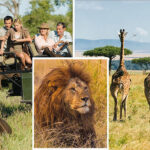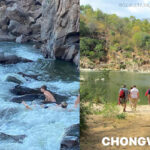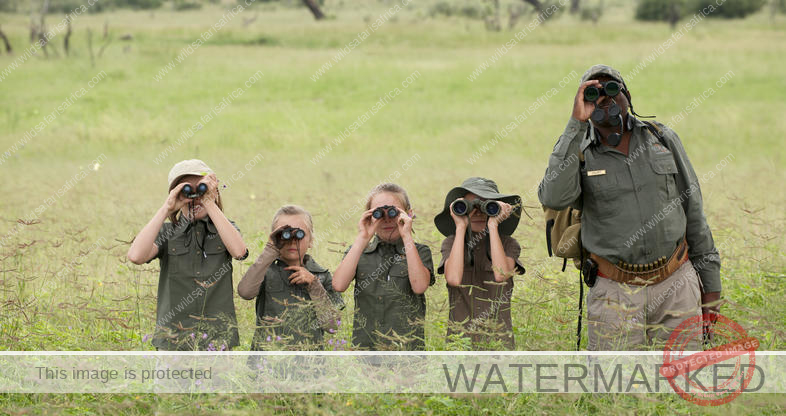
An African safari can be a thrilling adventure for families, offering unique experiences that children can cherish for a lifetime.
However, planning a safari that caters to kids of all ages requires careful consideration of various factors, including age-appropriate activities, accommodations, and safety measures. Here’s a detailed guide tailored to different age groups to help ensure a memorable safari experience.
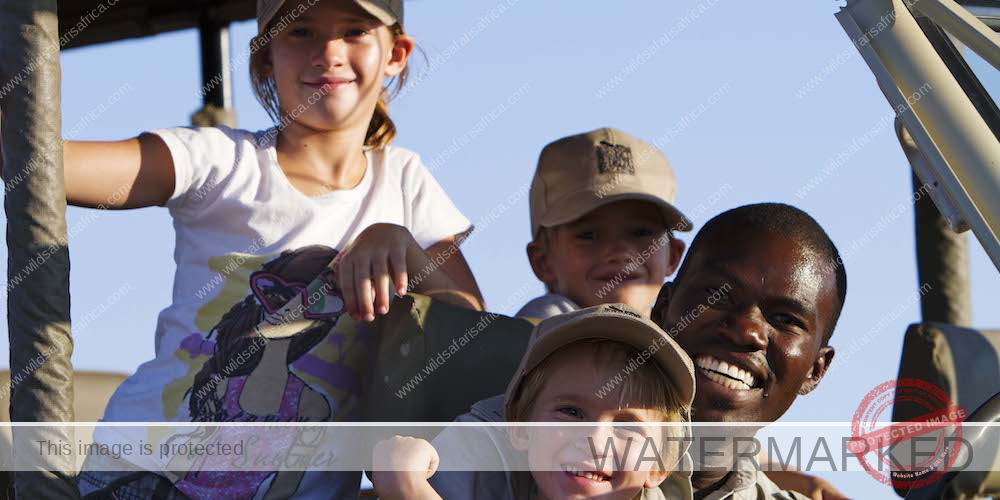

Tips for all ages
- Have a private guide: A private guide is essential for going on safari with kids. Not only will your kids connect with the staff, but the adults will get a well-deserved break from 24/7 parenting duties. If a private guide is out of reach for your budget, private vehicles at each camp will give you the flexibility to make sure everyone is always having fun.
- Think activities, not countries: Match the safari destination that’s right for your family and kids by first thinking about the activities that your family enjoys. Rather than tick off multiple counties in one trip, consider planning your adventure all within one country.
- Talk before the trip: Describe where you will stay, what animals you can expect to see, how you will travel around, what activities are available. Get their input and make sure your kids feel every bit a part of planning the adventure.

Infants and Toddlers (Ages 0-4)
Choosing the Right Safari Experience
- Self-Drive Safaris: Many national parks allow self-driving, which provides flexibility to manage your schedule. This is ideal for families with young children, as you can take breaks as needed for snacks or diaper changes without worrying about other passengers.
- Short Game Drives: Limit game drives to 2-3 hours to accommodate shorter attention spans. Look for parks where wildlife is easily visible from the road, ensuring that young children can spot animals without lengthy waits.


Accommodations
- Family-Friendly Lodges: Opt for lodges or camps that offer family units or self-catering options. Facilities like swimming pools or play areas can keep toddlers entertained during downtime[1][4].
Safety Considerations
- Fenced Camps: Choose accommodations with fenced areas to ensure safety from wildlife. Always keep children inside the vehicle during game drives and respect animal distances.
Essential Packing
- Snacks and Entertainment: Bring plenty of snacks and small toys or books to keep toddlers engaged during drives. Snacks are crucial to prevent hunger-related meltdowns.
Preschoolers (Ages 4-6)
Engaging Activities
- Interactive Learning: Incorporate educational experiences, such as guided nature walks or visits to local communities, to keep preschoolers engaged. Many parks offer family-friendly activities that can be both fun and educational.
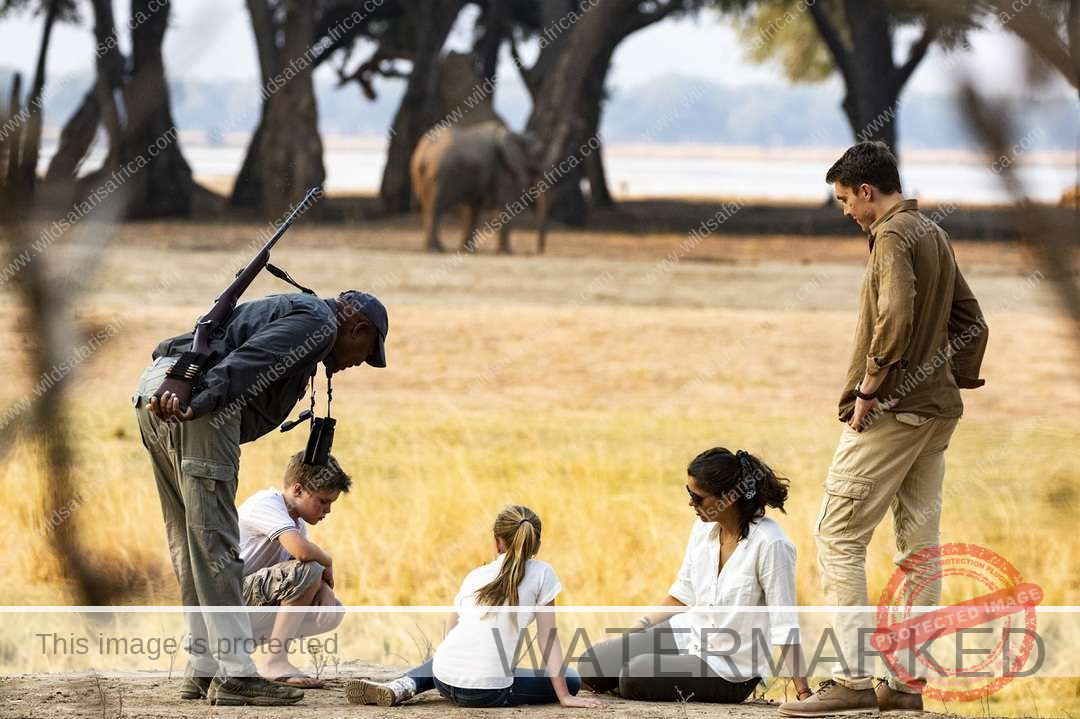

- Wildlife Spotting Games: Turn wildlife spotting into a game by having children look for specific animals or tracks. This can make the experience more interactive and exciting.
Duration of Safari
- Shorter Stays: Limit the time spent in national parks to about 48 hours, as young children may lose interest after prolonged exposure to the same environment.
Accommodation Tips
- Choose Camps with Pools: Look for camps that feature swimming pools, as this can provide a fun activity for kids after game drives.
Early School Age (Ages 7-10)
Safari Activities
- Longer Game Drives: Children in this age group can handle longer game drives (up to 4 hours), but it’s still wise to plan for breaks and engaging activities during the trip.
- Involvement in Planning: Involve children in the planning process by letting them choose some activities or animals they want to see. This can increase their excitement and engagement during the safari.
Educational Opportunities
- Wildlife Conservation: Introduce kids to concepts of wildlife conservation through educational programs offered by many parks. This can foster a sense of responsibility and connection to nature.

Accommodation Choices
- Private Guides: Consider hiring a private guide for a more tailored experience, allowing for flexibility based on your children’s interests and energy levels.
Tweens and Teens (Ages 11+)
Adventure and Exploration
- Extended Safari Options: Older children can enjoy longer game drives and may appreciate more adventurous activities such as walking safaris, zip-lining, or even hot air balloon rides over the savannah[4].
- Cultural Experiences: Incorporate cultural experiences, such as visiting local villages or participating in community projects, to provide a broader context of the region and its people.
Accommodations and Logistics
- Luxury Lodges or Tented Camps: For families with older children, consider staying in luxury lodges or tented camps that offer more amenities and activities, including guided night drives or stargazing[4].
- Travel Documentation: Ensure that all necessary travel documents are in order, especially if traveling to countries with specific regulations for minors.
General Tips for All Ages
- Health Precautions: Consult with a healthcare provider about vaccinations and malaria prophylaxis, especially for younger children. Some regions are high-risk for malaria, and appropriate precautions are essential.
- Dress Appropriately: Pack neutral-colored clothing, avoiding blue and black to steer clear of tsetse flies. Comfortable shoes are also a must for walking safaris and other activities.
- Plan for Flexibility: Be prepared to adjust your itinerary based on your children’s moods and interests. Flexibility can lead to unexpected and delightful experiences during your safari[1].
By considering the specific needs and interests of children at different ages, families can create a well-rounded and enjoyable safari experience that fosters a love for wildlife and nature. An African safari can be an unforgettable adventure for children, instilling lifelong memories and appreciation for the natural world.

